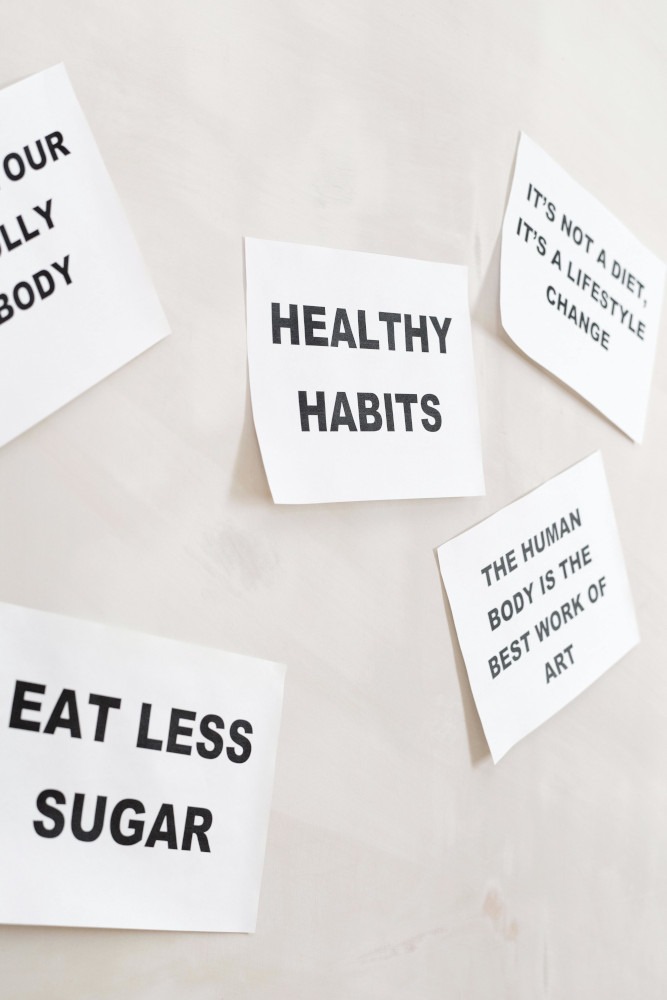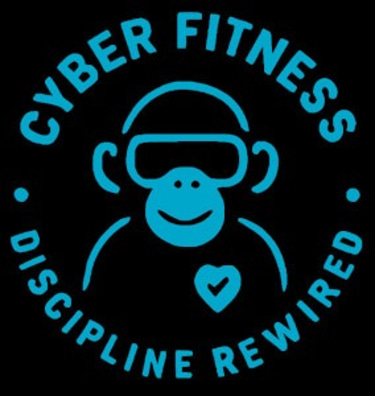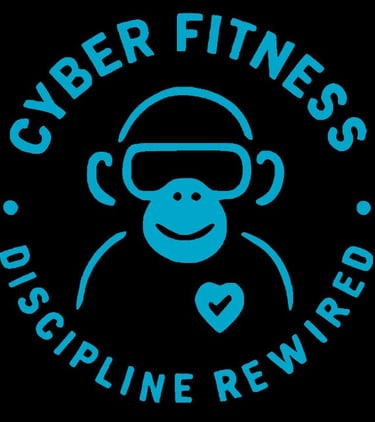Build better habits.
Build better habits, break the bad ones, and set your whole family up for calmer, more focused days with simple psychology-backed routines and practical tools.


Some habits slip into your life quietly, almost politely, like they’re knocking on the door and you just let them in because you’re tired. A biscuit at night. A scroll before bed. A skipped walk. A glass of wine to “take the edge off”. It’s wild how easy it is to fall into bad habits and how hard it is to claw your way out.
The psychology is simple and brutal: your brain loves predictability. It wants loops, routines, shortcuts. Charles Duhigg’s breakdown in The Power of Habit explains, runs on cue → routine → reward. Your brain gets a hit of dopamine when you complete the routine, even if the behaviour is terrible for you. So if scrolling reels helps you escape for 30 seconds? Your brain logs that as relief. Do it enough and suddenly you're not choosing it anymore - your brain is dragging you toward the cue like a blackhole.
Addiction isn’t limited to hard drugs and alcohol. It’s micro-addictions to comfort, distraction, sugar, the glowing rectangle in your hand. The article “The Neurobiology of Addiction: A Pathology of Motivation” details how repeated rewards alter brain structure and create compulsive behaviours, and breaking the cycle requires conscious disruption. Not punishment. Not shame. Disruption.
That’s the uncomfortable truth most people avoid. Habits aren’t moral choices. They’re neurological grooves. And the deeper the groove, the harder the climb - but still possible, and absolutely worth the effort.
The bigger-picture goals matter here. When you try to break a habit or start a new one without knowing “why,” you’re basically building IKEA furniture without the instructions. You’re just stabbing the allen key at random holes and hoping the thing stands up. When your reason is too small, the habit won’t survive. “I want to drink less coffee” is flimsy. “I want to feel calmer and have more energy for my kids” is strong. One is a rule; the other is a vision. Your brain fights rules. It moves toward visions.
And this matters for families too. Habits aren’t individual - they’re environmental. A house where everyone is stressed, tired, overstimulated, and overloaded becomes a factory for bad habits. A house with even a few consistent routines becomes a foundation for sanity. Research shows families with shared routines experience less household conflict, better mood regulation, and healthier long-term behaviours. You don’t need military precision. Just predictable anchors in the day.
So where do you actually start? You start by noticing the cues. Most bad habits begin with the same four triggers: boredom, stress, fatigue, or avoidance. When you can see the cue, the habit loses some power. You name it: “I’m reaching for my phone because I’m avoiding starting work”. “I’m overeating because I’m tired”. It’s messy honesty, but it works.
Then you replace, not remove. A bad habit needs a substitute - your brain hates a vacuum. Too much doomscrolling at night? Swap the phone for a book or a Kindle. Emotional snacking? Swap the biscuit for tea and a walk. Overthinking? Swap the internal monologue for journaling, voice notes or poems. The UCL habit formation study found that replacement routines had the highest long-term success because they satisfy the cue while rewiring the loop.
Now the practical stuff - the tools, the apps, the real-world tactics you can put in place tonight, not in some imaginary perfect future where you’re suddenly a superhuman.
To-do lists are your first line of defence. But they need to be simple. I use Todoist and Notion. Todoist for the small, sharp tasks: pay the bill, grab milk, reply to so-and-so, book the dentist. Notion for the bigger arcs: goals, routines, habits, monthly resets, life categories, the whole “who am I becoming” type stuff. It lets you hold the macro and micro in the same ecosystem.
If those feel too heavy, you can go lighter. Habitify is clean and visual. Streaks turns habit tracking into a game. Fabulous adds storytelling and guided routines, which can be a lifesaver for people who struggle with structure. And if you know you want change, but are unsure what areas in your life need this attention, Daylio lets track the events of your day and signs it off with an emoji. It sounds silly, but once you realise the succession of sad faces always tend to show up on the days following drinking sessions with your buddies – you can see what adjustments need to be made. Basic pattern recognition. I used Daylio to realise, and then break, my bad habit cycle many years ago. I can't recommend it highly enough. Simple, but effective.
Then there’s the environment. You cannot rely on willpower alone. Willpower burns out, gets emotional, gets tired, gets bored. Your environment doesn’t. If you want to reduce sugar, don’t buy it. If you want to walk more, leave your shoes by the door. If your kid needs to study, create a consistent desk setup. You don’t magically rise to your goals; you fall to your systems. This is where habit cues come in. Put your journal on your pillow so you can’t go to bed without touching it. Put a water bottle on your desk so your brain registers it every time you sit down.
For families, create shared habits that set the tone, not the rules. A nightly 10 minute tidy. A morning routine where each person has their job. A Sunday reset. A device-free hour. A weekly walk. These aren’t punishments - they’re anchors. They build the unspoken culture of the house: around here, we look after ourselves and each other.
For teens, the trick is autonomy. You don’t force habits on them - you help them design theirs. Let them choose the habit, the app, the reminder tone, the time of day. If they feel ownership, they’re far more likely to stick with it. And if their habits are digital, you can even gamify it: use Streaks or Finch (a “self-care pet” app they look after by completing tasks). It sounds ridiculous, but it works because their brain gets the reward immediately.
For younger kids, keep it physical. Stickers. Charts. A weekly “big stars” reward. Their brains crave tangible feedback - something real they can see, hold, or show you. And celebrate the wins. Kids don’t follow habits because they’re good for them; they follow habits because they’re relational.
For us grown ups? You need honesty. You need to ask: what’s the cost of staying the way I am? Not in a dramatic way. Just real. If you keep the habit you hate, what does that look like in 5 years, 10 or 20? If you build the new one you’re scared of, what does that look like in 5 years? The emotional truth is usually enough to jolt you forward.
And consistency is not perfection. If you miss a day, you miss a day. If you miss two? Pick it up again. Shame kills more habits than failure ever has. Your job is not to be flawless - it's to return.
The momentum is the magic. The tiny shift from “I hope I can do this” to “holy shit, I’m actually doing it”. That feeling spreads. It drags other good behaviours along with it. Fixing one habit often improves three more without you even trying. That’s not motivation. That’s identity changing, brick by brick.
Better habits don’t require a new personality. They require small, repeatable actions and a willingness to keep showing up even when your brain is screaming for the easy way out. And if you build the environment, the cues, the substitutes, and the systems, you’ll feel yourself changing. Slowly at first. Then unmistakably.
If you want a better life, you don’t need to overhaul everything. You just need one good habit today. One tomorrow. A couple next month. And eventually, you’ll look around and realise your old life doesn’t fit you anymore - and your new one does.
Where to start?
Start with one habit today. Something small enough that you can’t fail, but meaningful enough that your future self will thank you. Put it in Todoist or Notion, set a cue for when it will happen, clear the obstacles from your environment, and commit to showing up - even if it’s messy, even if it’s imperfect. And if you want structure, support, and grounded frameworks that actually work in real life - not just on paper - explore the tools inside Cyber Fitness – Discipline Rewired. This is where you learn to rebuild your routines, sharpen your discipline, and shape a life you can stand behind. One habit. One day. Then another. Your momentum starts now.


